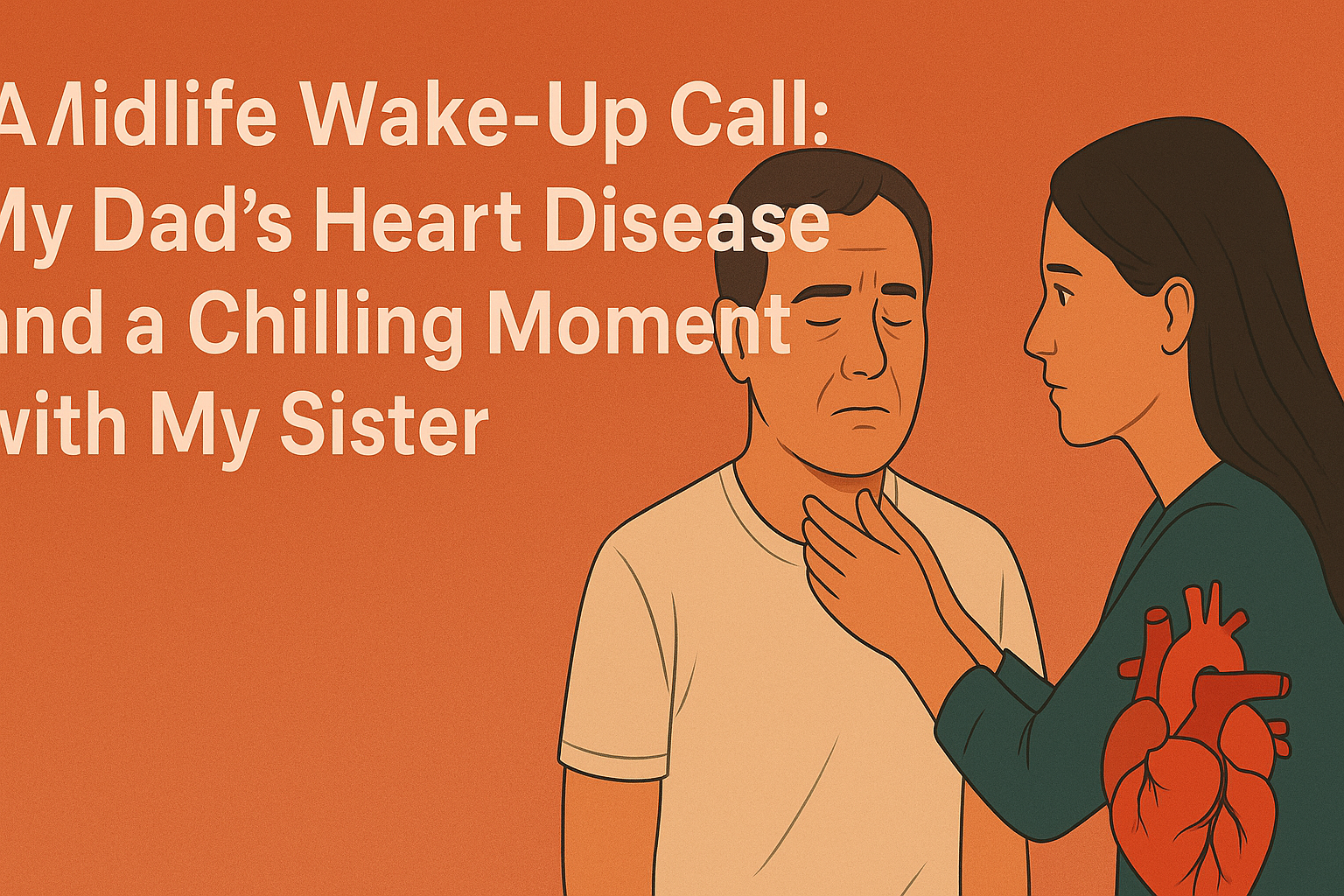Losing my dad to a heart-related disease left a wound that still feels raw. It all started with those inexplicable fainting spells. Moments when he’d collapse without warning, leaving us scrambling for answers. At first, we pointed to the nodular goitre swelling around his neck, wondering if it was choking off something vital. But test after test, such as thyroid scans, blood work, showed no link. The real culprit was his heart. Doctors found a faulty pacemaker, his body’s rhythm keeper faltering, and recommended an artificial one.
Now, as I navigate my midlife years, I’m hyper-aware of my own health, haunted by the diseases that plagued him in his later years. Why this sudden vigilance? Maybe it’s the midlife stage, or maybe it’s something deeper, stirred by a chilling moment just yesterday.
I was catching up with my sister, laughing about old times, when she gave me a strange look. She reached out, gently touched my neck, and asked me to talk. Her face shifted, and her words hit like ice:
Better don’t develop goitre like Daddy.
A shiver ran down my spine. It wasn’t just her words; it was the echo of our dad’s struggle, the fear that I might be next. That moment crystallized my growing unease, making me wonder if my body’s betraying me in ways I can’t yet see.
Midlife has a way of sharpening your focus. I’m in my 30s now, and my body’s not what it used to be. No longer the carefree machine of my 20s. Aches linger, energy dips, and my dad’s health battles loom large in my mind. His fainting spells were tied to a heart condition, and science tells me I’m not entirely in the clear. Conditions like arrhythmias, which can cause sudden fainting, or cardiomyopathies, where the heart muscle weakens, often have genetic roots. Studies suggest that if a parent had heart disease before 60, your risk could double. Every odd heartbeat I notice now feels like a warning, a nudge to pay attention. Something on the bright side, though, is that my dad developed this condition after turning 60.

The goitre adds another layer of worry. My sister’s comment brought it rushing back. Dad’s goitre wasn’t the cause of his fainting, but its presence was unsettling - a visible sign of something wrong. Goitres can stem from iodine deficiency, autoimmune conditions like Hashimoto’s, or, rarely, thyroid cancer. While less directly hereditary than heart issues, thyroid problems can run in families, especially if autoimmune factors are at play. I catch myself touching my neck, half-expecting to feel a lump. Her words linger. I’m already planning a thyroid test to quiet the fear.
This midlife stage feels like a turning point. Psychologists call it a mortality cue, a moment when you confront your own fragility. Losing Dad was mine, and my sister’s words yesterday amplified it. Midlife makes you notice the clock ticking. Cholesterol climbs, blood pressure can spike, and past lifestyle choices start to catch up. The American Heart Association notes that by age 45, cardiovascular risk factors surge for both men and women. My sister’s warning, paired with Dad’s history, has me on edge, but it’s also a wake-up call. I don’t want to live in fear, but I can’t ignore the signs either.
So, I’m taking action. Heart health isn’t just about genes; lifestyle matters too. Diets heavy in saturated fats, stress, or smoking can turn a genetic risk into reality. I’m leaning into more vegetables, daily walks, and trying, though it’s tough, to manage stress. A cardiologist visit is on my radar for an ECG or stress test, maybe even genetic screening if it makes sense. For the thyroid, a simple TSH test could ease my mind about goitre risks. These steps feel like reclaiming control, a way to honor Dad’s memory by not repeating his story.
Midlife is teaching me to listen: to my body, my fears, and even my sister’s unsettling words. It’s about balancing vigilance with living fully. I carry Dad’s loss in my heart, but I also carry his strength. If you’re in this midlife moment, feeling the weight of family history, know you’re not alone. Let’s take it one step, one heartbeat, at a time.
Resources
- https://www.mayoclinic.org/diseases-conditions/goiter/symptoms-causes/syc-20351829
- https://psycnet.apa.org/record/2005-06644-002
- https://my.clevelandclinic.org/health/articles/17385-heart-disease-prevention-and-reversal
- https://www.heartfoundation.org.au/your-heart/family-history-and-heart-disease
- https://www.niddk.nih.gov/health-information/endocrine-diseases/hypothyroidism
Posted Using INLEO